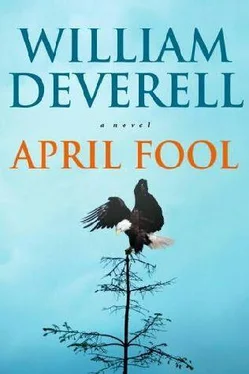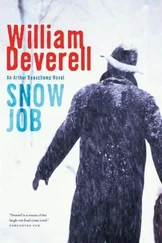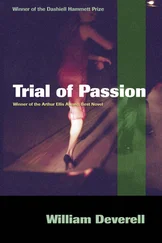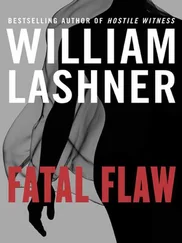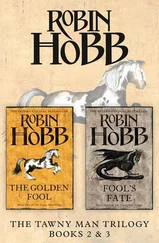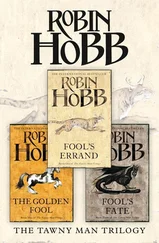William Deverell - April Fool
Здесь есть возможность читать онлайн «William Deverell - April Fool» весь текст электронной книги совершенно бесплатно (целиком полную версию без сокращений). В некоторых случаях можно слушать аудио, скачать через торрент в формате fb2 и присутствует краткое содержание. Год выпуска: 2005, ISBN: 2005, Издательство: McClelland & Stewart, Жанр: Криминальный детектив, на английском языке. Описание произведения, (предисловие) а так же отзывы посетителей доступны на портале библиотеки ЛибКат.
- Название:April Fool
- Автор:
- Издательство:McClelland & Stewart
- Жанр:
- Год:2005
- ISBN:9780771027116
- Рейтинг книги:3 / 5. Голосов: 1
-
Избранное:Добавить в избранное
- Отзывы:
-
Ваша оценка:
- 60
- 1
- 2
- 3
- 4
- 5
April Fool: краткое содержание, описание и аннотация
Предлагаем к чтению аннотацию, описание, краткое содержание или предисловие (зависит от того, что написал сам автор книги «April Fool»). Если вы не нашли необходимую информацию о книге — напишите в комментариях, мы постараемся отыскать её.
April Fool — читать онлайн бесплатно полную книгу (весь текст) целиком
Ниже представлен текст книги, разбитый по страницам. Система сохранения места последней прочитанной страницы, позволяет с удобством читать онлайн бесплатно книгу «April Fool», без необходимости каждый раз заново искать на чём Вы остановились. Поставьте закладку, и сможете в любой момент перейти на страницу, на которой закончили чтение.
Интервал:
Закладка:
Arthur turns on the six o’clock news as he undresses for a bath, and garlic scents waft from the kitchen. He hopes there will be pie-he harvested young rhubarb, left the tender red stalks in the kitchen as a hint. But Margaret has become stingy with her desserts. He might be a few pounds overweight, but the flesh hangs well enough on his tall frame. His most attractive feature, says Margaret, presumably joking, is the commanding nose. Cyrano, friends call him.
On the radio, he hears that Nick Faloon has appeared in court on a psychiatric remand. A judge has ordered the appointment of a legal-aid counsel.
That will not do. Arthur climbs into the tub with the phone and leaves a message at Pomeroy Macarthur Brovak and Sage, criminal lawyers. Any one of them will do, though he’d prefer the brittle but oftentimes brilliant Brian Pomeroy-if he’s at the top of his game and not struggling through another nervous breakdown.
Arthur spends much of the evening nodding sympathetically over poached salmon and greens, then rhubarb pie and tea, then in the comfort of his club chair by the fire, as Margaret holds forth. “There’s old growth in there, Arthur, because there’s never been a road. Now they’re going to cut a swath sixty yards wide through it. Pavement! Power lines! Next will be a bridge-we won’t be an island any more, we’ll be a bedroom. Is that what you want?”
This is one of her rhetorical flourishes, not a question. He has learned it’s unwise to argue, so he pronounces his loyalty, and she is satisfied with that and carries on.
Much of her fire tonight is directed at Garibaldi’s trustees, who rezoned Gwendolyn, who “buddied up” to the developers, traded in this island’s wild heritage-“for fifty acres of public park and a fire truck that we were raising funds for anyway.” She rejected such gifts when she was trustee, then was narrowly defeated in the last campaign.
“They’re going to start tomorrow, Arthur. They’re blasting the Gap. There are some three-hundred-year-old firs in there. How can you sit there and let that happen?” She immediately regrets that challenge, comes behind him, folds her arms around his neck, her brown, close-cropped hair tickling his ear. “Come on, Arthur, you’ve got to stop being such a doornail. You can’t live on Garibaldi and be a political recluse. We’re not asking much…some legal help, that’s all.”
“In what sense?” He has always managed to tiptoe away from such requests: to assent means to get involved. Political meetings. Contention. That’s not why he came to Garibaldi.
“We have to take some risks. Direct action.”
An expression that encompasses sins like civil disobedience, a concept in which he’s never found much favour. Laws should be changed, not broken. “Surely you’re not hammering spikes into trees.”
The phone rings. “We’ll talk about it tonight when I get back.” She picks up the receiver: “Hi, what’s up?…Twelve more bodies, right on.” She hangs up.
“Twelve bodies?”
“Don’t worry, they’re alive.”
Shrugging on her coat, she says, “Remember to look in on the Woofers” and races off, abandoning the recluse. Arthur is smarting, but he’s also troubled: direct action hints of illegality and sorry consequences.
After he tends to the dishes, he strolls over to Margaret’s former residence-their farms have been consolidated-to check on the Woofers boarding there. Willing Workers on Organic Farms: they come from lands near and far, they exchange labour for lodging and food, they stay for a few weeks, they go. Blunder Bay has had as many as five, but currently only two: Paavo, a forestry student from Helsinki, and Kim Lee, a Korean nutritionist. Communication is faulty. Paavo struggles in English, and the Korean girl is beyond comprehension.
Sign language, however, makes do, though it demands skill at slapstick. Clucking and flapping ensures the chickens are fed; a pantomime of two-handed masturbation gets the goats milked. These efforts are usually greeted by uproarious laughter. Though the Woofers often create more work than they do, they are good kids, adventurous, travelling the world. Arthur enjoys sharing chores with them, swapping language lessons, brushing up on his French or German, learning a little Finnish or Korean or Japanese in exchange for English and Latin and ancient Greek.
No one is about but Kim Lee, a fresh-faced twenty-year-old. “Where is Paavo?” he asks.
“Go. Help. Save.” A sweeping motion, raising her arms high, then circling what may be the trunk of a tree. Arthur gathers Margaret has commandeered Paavo for her surreptitious project.
She doesn’t return until after midnight, waking him briefly as she slides into bed. He seeks to caress her, but she denies him, rolls onto her stomach. Arthur has trouble resuming sleep.
4
Arthur is awakened by a clattering outside. When he sits up he is blinded by the sun streaming through his window. He finds his glasses and makes out Stoney and Dog throwing tools into the back of his pickup. Margaret’s own truck has gone, and she with it-her side of the bed is empty. A memory of last night, her coolness, causes an ache in the chest, like heartburn.
He hollers, “Don’t do anything. I’m getting dressed.” Stoney is a habitual borrower of his beloved 1969 Fargo, though that’s partly Arthur’s fault: he leaves the keys on the dashboard. The last time Stoney drove off with it, Arthur went two weeks without a vehicle-other than his Rolls, on blocks, under cover. Stoney sold him the Fargo, so perhaps he feels some inherent right to its use. He and Dog exercise a similar claim to the garage they built for Arthur, who once surprised them inside assembling a still.
Stoney — alias Bob Stonewell — is a supposed master of many trades: mechanics, carpentry, and a specialized form of horticulture — and is usually reeking of its well-smoked essences. His accomplice, who seems to bear no other name than Dog, is built like a fireplug and speaks about as often. Somehow, these two stalwarts have become part of Arthur’s life, like extra appendages that one must learn to live with, however non-functional.
As he steps into his gumboots, Arthur sees Dog toss a tree-climbing harness into the cab of the truck. Closer observation reveals that Stoney’s jacket is speckled with saw chips. Both seem exhausted, dirty as if from hard work, however unlikely that would be on this pleasant April morning.
“You fellows are up early.”
“Haven’t been to bed.” Stoney extends a can of beer. “You drinking these days, Arthur?”
“Afraid not.” Why is it generally assumed that Arthur must one day, after fifteen years, finally succumb? “What have you gentlemen been up to?”
“First off, we’re celebrating our new company, Island Landscraping. You heard that Dog and me, we bought a backhoe, eh? Kind of used and beat up, but we got it running smooth as silk.” However tired, Stoney is a tireless gabber, especially when under the influence of Garibaldi’s infamous main crop. “I’m in hock for the parts, though, and I was thinking, that low spot over there, where all you got is horsetails, what you need is a pool-that’s the only thing this property lacks.”
“We already have a pond.” Back of the barn, where the geese nest.
“Full of weeds. I’m talking about going down fifteen, twenty feet, for swimming.”
Stoney probably overheard him and Margaret talking about a swimming hole. “It’s still rainy season, Stoney, but if Island Landscraping survives as a going concern until August, we shall then consider its bid.” The low spot is saturated with spring runoff; he has visions of a backhoe sitting forever in a wet hole a hundred yards from the house.
Читать дальшеИнтервал:
Закладка:
Похожие книги на «April Fool»
Представляем Вашему вниманию похожие книги на «April Fool» списком для выбора. Мы отобрали схожую по названию и смыслу литературу в надежде предоставить читателям больше вариантов отыскать новые, интересные, ещё непрочитанные произведения.
Обсуждение, отзывы о книге «April Fool» и просто собственные мнения читателей. Оставьте ваши комментарии, напишите, что Вы думаете о произведении, его смысле или главных героях. Укажите что конкретно понравилось, а что нет, и почему Вы так считаете.
